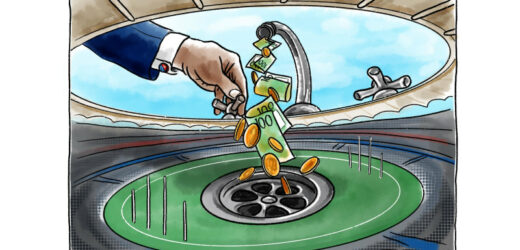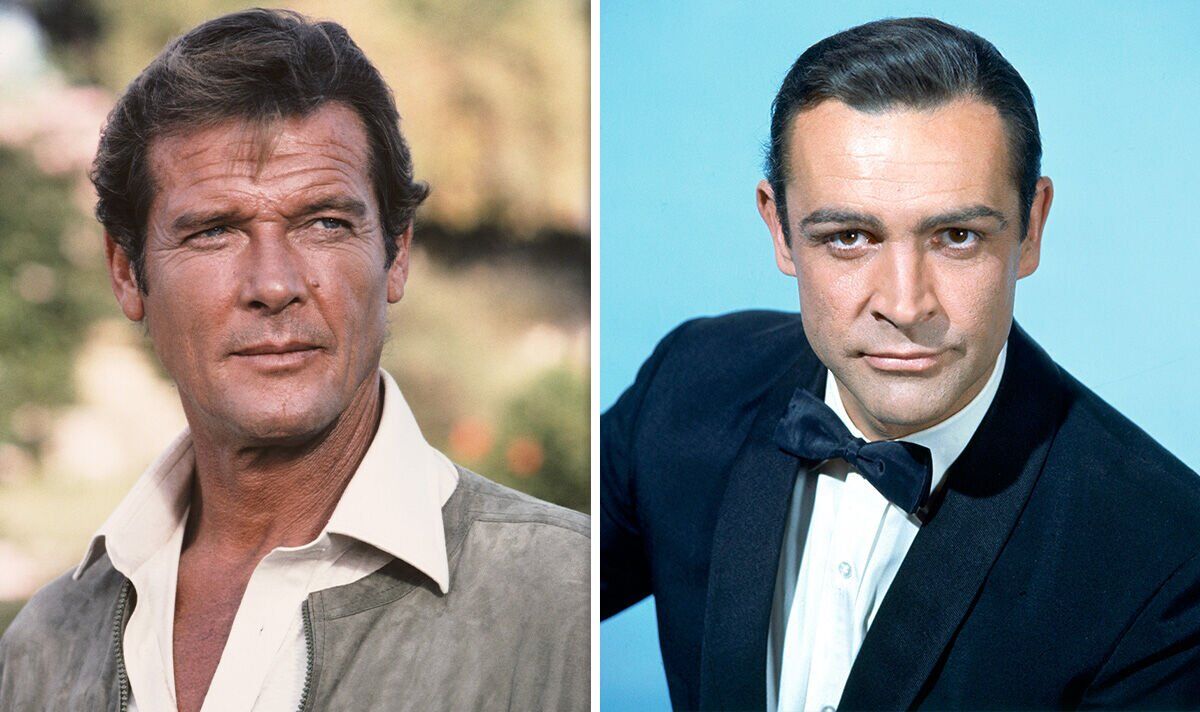Save articles for later
Add articles to your saved list and come back to them any time.
Megan HerbertCredit: .
With around 20 years of similar planning policies (″Good design must be key in apartment push″, 29/4), high immigration and high levels of foreign property purchases, surely it’s time for a total root and branch reassessment of policies affecting property prices, availability and quality. Suggestions of an override of local government and community opposition to high-density housing in inner and middle suburbs actually reach into the realm of dictatorship, and seem loosely to want to set one generation against another. Remaining out of the discussion yet again are the ideas of regionalisation, greater restriction on foreign ownership and a lower level of immigration, at least until both housing construction and infrastructure have caught up. With some comments that we won’t “catch up” on target migration levels until 2029, which implies there is some target for massive population growth, regretfully we seem set to simply continue doing the same thing, with predictable results in ever-reducing affordability and amenity.
Mathew Knight, Malvern East
Where will new migrants live?
I appreciated the article ″Duct tape, two ministers and a tiny ’bedroom″, 29/4), especially so in light of the article calling for local councils to be removed from the development approvals process (″Overcome NIMBYs and build where people want to live″, 26/4). At a time when housing affordability is at its lowest, rental properties are scarce and housing construction is chronically insufficient, how does the government propose to accommodate 400,000 migrants within the next seven months? Apart from glib statements about ″economic drivers″ and ″new housing measures″ there has been little actual substance. A federal objective to build 1 million homes over five years is inadequate and little more than wishful thinking.
Stephen Farrelly, Donvale
The only attraction is the price
Anybody who has shopped for their first home in recent years will tell you that the only thing attractive about most new construction is the price. Small, boxy units with limited natural light, no dining space (the kitchen bench doesn’t count) and no internal storage. While it is true we need to increase supply in desirable locations, we must ensure supply of quality homes that people actually want to live in. The reason people move to the outer fringe isn’t because there’s no housing closer to the city, it’s because the housing closer to the city is small, dark and cramped, with no feasible outdoor space. I never thought I’d be a NIMBY, but I certainly am sceptical about the 16-storey apartment building going up across the street from my townhouse. The sales website advertises rental returns and growth rate on the front page – hardly an indication these developers are building for home owners rather than investors.
Christina Cox, Coburg
Please, let the sunshine in
I disagree with “Overcome NIMBYs and build where people want to live” (26/4). The article blames local councils and their ratepayers – the “damn NIMBY movement” – for blocking the development of new housing. I guess I’m a NIMBY, since I objected (unsuccessfully) to a proposal for a seven-storey apartment building right next door to my modest single-storey home. We’ve had two years of noise, dirt, fumes, trucks and cranes. We could sell up – but the value of our home will have plummeted.
Yes, we need new housing, but without trashing the living standards of thousands of Melbourne residents. My concerns are not unreasonable; I just want a bit of privacy and some sunshine. We dread losing our precious afternoon and evening sunlight. This will significantly reduce our quality of life and wellbeing, including our mental health. We NIMBYs just want a fair go – a system that recognises our needs as well as the objectives of government and the profits of big developers.
Mary Neighbour, Caulfield South
FORUM
Whose goals?
The financial support from the federal government to build another stadium in Hobart shows how powerful the AFL is as a lobbyist organisation. To quote Richard Flanagan (Comment, 29/4), “the state does not have a stadium problem. It has a housing and homelessness problem.“
The proposed development is being opposed by many who would not usually unite for a common cause, but they have done so because of concerns for their state, as they believe there are higher priorities for Tasmania such as health, education and housing. The Prime Minister Anthony Albanese appears to be following a populist path with this decision, as it is in conflict with some of his other priorities of housing and reconciliation. One of the previous suggested uses for the site was an Indigenous Truth and Reconciliation Park, but this has been relegated in favour of yet another football stadium.
I appreciate the sport is important, but if we are going to provide federal financial support, at least let it be at a community level through appropriate grants, not to something that may become a white elephant and according to Flanagan, a possible sovereign risk to the AFL due to the terms of agreement.
Helen Thomas, Nunawading
The wrong call
Richard Flanagan is right. This is prime heritage real estate, sitting directly alongside the Cenotaph – a serene and revered site for the RSL and all Tasmanians – as well as having the beautiful backdrop of kunanyi/Mount Wellington. One could envisage public spaces, perhaps an Antarctic research centre and visitor display – places where the public could relax.
This proposed folly will seat 23,000 apparently. Directly across the Derwent river, just six kilometres away, there is already a perfectly good stadium that seats 20,000 – easily upgradable.
It is hard to fathom Anthony Albanese’s thinking on this support for a not too popular Liberal premier, a premier who resides over the worst health system, the worst education system, the highest homelessness in the nation. If he thinks it will deliver Tasmania to Labor he has not read the room at all.
Yvonne Trevaskis, Battery Point, Hobart
A black hole
I’m an avid AFL supporter and a club member, but the Albanese government’s Tasmanian stadium funding decision, in the current circumstances, is just plain wrong. It has been had. No spin, rationalisations or smokescreens can disguise this bizarre decision to fund what will be, in all likelihood, an ongoing financial black hole at the expense of urgent needs in housing, health and education in that state. It is both practically and morally indefensible.
Mark Morrison, Kew
Different values
Shouldn’t a stadium be the long-term objective of a Tasmanian team rather than the predicate for it. If a Tasmanian team fostered business investment in the state and built the game up from the grassroots with prudent administration and sustained onfield success they could pay for a stadium themselves eventually that reflected their standing in the community rather than the imposition of corporate values from the mainland.
Mark Fitzgerald, Wodonga
A shuddering thought
As a former Tasmanian Greens activist and party member I am closely following the Victorian Greens’ handling of their transgender debates. I don’t know whether to laugh or cry but I do shudder at the thought of them ever being in power.
Eddie Storace, Moonee Ponds
Lost my vote
In reference to “Inside the Greens’ battle against transphobia” (29/4). Let the Greens’ public ideological pushing and their internal ″management″ of this issue be their downfall. They have certainly lost their way, and my vote.
Katherine Sciglitano, Melbourne
Cult moves
In reading ″Inside the Greens’ battle against transphobia″ it struck me that the Greens are becoming a cult. History tells us what happens to political parties that turn to authoritarianism. Are there no adults left in the room? Where is Adam Bandt in all of this?
Velvet Kay, Castlemaine
Delusional stance
It is hard to picture anyone reading the “Inside the Greens” article without a sense of utter disbelief at the delusional and authoritarian nature of the proposed definition of “transphobia”. Essentially a party set up to focus on responsible stewardship of nature and the environment has decided the most important issue is insisting that males are women if they say they are. And further, that the mildest challenge to this extreme position is so unacceptable as to require excommunication.
As a lesbian, I cannot stress how exasperating it is to be told that my lack of interest in penises is not a natural feature of my sexuality but a manifestation of my appalling bigotry. The Greens’ position is so extreme, so intolerant and, above all so dishonest, that one can only assume they have no real interest in taking a role in a government, preferring instead to promote an increasingly discredited and cult-like position from the sidelines, shouting down adults attempting to make genuine social progress that balances the interests of all.
Jo Smith, Reservoir
The way back
Good to see The Age offering a balanced perspective on suppression of debate on women’s rights inside and out of the Greens. If they can take these issues seriously, they may regain me as a voter.
Kate Bowshell, North Melbourne
A liveable planet, please
In last Saturday’s issue, The Age reported that we can expect 400,000 immigrants to Australia this year, and columnist Ian Lowe wrote of the dire risks we are taking by continuing the economic and population growth agenda of current governments. It appears rapid growth and denser living is reducing social, environmental amenity and housing affordability and increasing social inequity. We need to provide the present and future generations with a liveable planet and a future.
Jennie Epstein, Little River
Let’s get on with it
The article ″When words fail, fists fly and hearts break″ (28/4) is spot on as shame and stigma stop many adults coming forward for help with literacy and numeracy. The article’s examples are typical of stories that we hear across the nation.
It is often local adult community education centres, or small community groups, sometimes with volunteer adult literacy tutors, which offer the most appealing and supportive environments for learning and building confidence.
Trying to navigate your way around a changing world without decent adult literacy and numeracy skills can mean economic and social exclusion. In March 2022 the parliamentary inquiry into adult literacy ″Don’t Take It As Read″ was released. The inquiry heard from many organisations, government departments and individuals and delivered a list of recommendations. We already know what works. Can’t we just get on with it?
Jenny Macaffer,
chief executive officer, Adult Learning Australia, Footscray
Plaudits for work
I applaud Professor Vasso Apostolopoulos’ work to find a cure for methamphetamine addiction by preventing the drug from crossing the blood-brain barrier (″Meth addiction and the quest for a vaccine″, 29/4). Thousands of Australian meth users could have the chance of learning new coping strategies and in time, appreciate life. And the professor’s research may lead to a cure for other drug addictions.
Ian Cameron, Chelsea
Rather would keep it
Rotherwood, on Riversdale Road, Camberwell, was built by Barry Humphries’ father Eric in the 1930s. Barry’s Poem for a Planner shows he understood perfectly well the damage overdevelopment was doing to Melbourne, with lines like “To us the whole of Melbourne is completely up for grabs. And our developer of choice uses the best of concrete slabs”. Rotherwood has nine dwellings, off-street parking and a large garden. To allow it to be bulldozed for high-end apartments causes vegetation loss, makes Camberwell hotter, and does nothing for housing affordability. It would be an appropriate tribute to Barry if his father’s legacy were to remain as is.
Kelvin Thomson,
convener, Planning Democracy
Hope for Voice
Annika Smethurst’s article on the push for a free vote on the Voice in the state parliamentary Liberal Party (″Lib MPs push for free vote on Voice″, 30/4) gives hope that the campaign for the upcoming referendum on the Voice will not degenerate into a party political bunfight.
As with the vote on marriage equality, all MPs should be able to vote according to their conscience, bearing in mind the wishes of their constituents. Let’s hope the state Liberal Party is not bound by the opposition to the Voice expressed by the federal Coalition.
Graeme Lechte, Brunswick West
Ban the jumps
Your correspondent (Letters, 29/4) says, “It is hard to imagine an activity more hostile to the aims and values of 21st century Australia than duck shooting”. With jumps racing banned in all states except Victoria, we still allow this long-outdated ″sport″, as a result of which horses will continue to face a high risk of falling, sustaining horrible injuries and being killed on Victorian racing tracks.
Joe Wilder, Caulfield North
Shouldn’t be allowed
In 1980, English rock band Fischer Z put out an album called Going Deaf for A Living. Unfortunately, it’s those who like their music loud, who end up paying the price.
Chris Burgess, Port Melbourne
AND ANOTHER THING
The coronation
Charles has waited 74 years for his day of pomp and circumstance. Let him enjoy it I say before we all go rushing off to become a republic.
Margaret Collings, Anglesea
Camilla, queen of Australia? Yeah, nah.
Sean Geary, Southbank
Let’s cry out and swear allegiance to the king. A crow call would do the trick. Woops wrong king.
Paul Custance, Highett
AFL
Wonderful to see the federal government commit millions to an AFL stadium in Hobart. At last the local CEOs will have somewhere to hold an annual sleepout while the Tasmanian government solves its housing crisis.
Darren McClelland, Moonee Ponds
Federal funds of $240 million for a stadium in Hobart but no money for Jobseekers. I’ve been hoodwinked.
Jack Morris, Kennington
It seems that pork barrelling for the next Tasmanian state election has started early.
Bryan Lewis, St Helena
It’s great to see the AFL has managed to get three quarters of a million dollars to help with the housing crisis in Tasmania.
Bruce McMillan, Grovedale
Furthermore
In reference to “Inside the Greens battle against transphobia” (29/4), a party that takes seriously the reality of climate change but denies the reality of biological sex has lost my vote.
Kathy Chambers, Northcote
Duck shooting can be called a “sport” when the ducks also have guns and can fight back. Otherwise it is just a massacre of the defenceless.
Rod Eldridge, Derrinallum
If a typo can give Americans the right to arm bears (Letters, 30/4), what Victorians need is the right to duck arms.
Jenifer Nicholls, Armadale
Finally
If chicken pie has chicken in it, what’s in shepherds pie?
Irene Morley, Seaford
Most Viewed in National
From our partners
Source: Read Full Article



